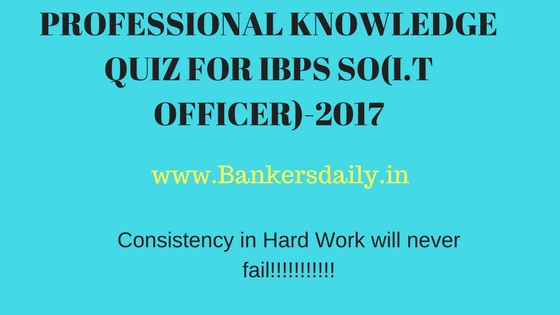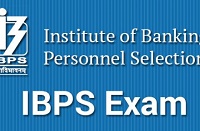Golden rules for Spotting Errors – Part 4 by Mr. Veeraraghavan Retd.RBI Officer

Golden rules for Spotting Errors – Part 4
by Mr. Veeraraghavan Retd.RBI Officer
Rule 1:
Position — at, in , between, among, amongst, above, on, under, below,
at exact point The tourist stayed at Annapoorna Hotel
Kumar studied at Anna University
Someone is waiting at the door.
in large area He lives in Coimbatore
between, among and amongst ( for following words starting with vowel sound)
above higher than
under vertically below The book is under the table
over vertically above The bedroom is over the kitchen
below lower than
Rule 2:
Direction – to, towards, into, at, for, against, off, from
towards – from one direction to another – He is walking towards the bus stop.
to – from one place to another – He is travelling from Salem to Chennai
into – movement towards inside – She walked into the room
at – refers aims – He aims at becoming a bank employee.
for – denotes direction -I will be leaving for Mumbai tomorrow
against – shows pressure – He leaned against a tree
off – separation – He fell off the chair
from – point of departure – We went from Coimbatore to Pollachi.
Rule 3:
Other commonly used — about, along, after, across, before, behind,beyond, beside, besides
about – nearness – His father is about to retire
after – sequence – He came after me.
across – from one side – He walked across the road and reached the bus stop.
before – in front of – There is a milk booth infront of our house
behind – at the back of – At the back of our house there is a house for servants
beyond – on the further side – The mofussil bus stand is beyond the city bus stand.
beside – by the side of – My moped is parked beside his bike.
besides – in addition to – Ramu has a car besides a motor bike.
Rule 4:
Certain verbs / phrases are always used with particular prepositions like adhere to , abide by, accuse of, accompanied by, acquit of , aim at, angry with , arrive at, ask for, avail of , bail out , bring about, comprise of, capable of, deter from , insist on etc.
NOTE: Many phrasal verbs are used with the preposition `with’ when the object of the verb is a person and other prepositions for other objects. Examples are vexed with, agree with, angry with, deal with etc and for other objects generally take other words like agree on the subject, agree to the terms, vexed on the subject etc
Rule 5:
Some verbs when they are used as transitive verb take the object without a preposition; e.g. attack, await.
Rule 6:
Conjunctions are of three types viz: coordinating, subordinating and correlative.
Coordinating conjunctions:
There are seven coordinating conjunctions in total which can be remembered with the help of the mnemonic, FANBOYS.
F – for A – and N – nor B – but O – or Y – yet S – so
These seven words function to connect two or more items of equal syntactic importance. These items can be words, sentences, or clauses.
Rule 7:
Subordinating conjunctions.
These conjunctions when connecting two clauses make one clause subordinate to another clause with the help of one of the following relations.
a) Contrast – although, though, even though, while, whereas –
The US failed to ratify the Kyoto treaty although/though it supported
the UN’s objectives on global warming.
Clean water is scarce in the poorest countries while Western consumers
have abundant supplies.
b) Reason — because, since, as
Dolly the sheep was unique because she was cloned from an adult cell.
The findings were flawed since the data were inaccurate.
c) Time — when, as soon as, while, as, once, until, after, before
Sea water evaporates when the sun radiates heat.
The water vapour cools while it is rising.
The water vapour condenses as it cools.
Clouds begin to form once condensation starts to occur.
The clouds move until they reach high land.
d) Purpose — so that
Tourists visiting Antarctica are required to clean their footwear
so that contamination can be avoided.
Many students join RACE institute so that they can easily clear the
competitive examination for a good job.
e) Condition – if, unless , as long as
Pollution levels will rise if emissions are not controlled.
Management recommendations are ineffective unless they are implemented.
f) Manner — as
We wrote up the results of the experiment as we had been directed.
This article researches how climate change might affect wildlife in Britain.
g) Place — where
People prefer to shop where they feel relaxed.
h) Adding information about a person — who, whose
The person who spoke to me yesterday gave me the wrong information.
Alvar Aalto was a Finnish architect whose ideas are fundamental to modern design.
i) Adding information about a thing — which, that
Canna is an island which lies off the west coast of Scotland.
There are geological changes in coastlines that may be impossible to influence.
j) Introducing reported information — whether, that, how
It was unclear whether the management would fund the proposed training scheme
Rule 8:
Correlating conjunctions:
Correlative conjunctions are conjunctions which consist of pair of words always used together like not only … but also, either ..or, neither..nor, no sooner… than hardly … when, scarcely … when etc.,
Rule 9:
Wrong usage of verb or verb form is frequently tested in competitive examinations.
Rule 10:
Some verbs when they are used as transitive verb take the object without a preposition;
e.g. attack, await,





